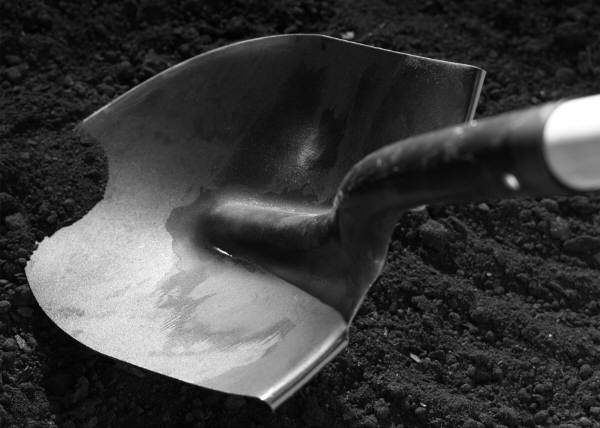Used with permission from Microsoft
Does every single student come out of a class in possession of the knowledge and skills the teacher tried to share? In other words, is the teacher a successful sharer? If so, then the teacher is a successful educator. If attempts at sharing fail, then the teacher is a poor educator. Education is sharing. Education is about being open (Wiley, 2010, p. 16)
When my husband and I met and fell in love, we embarked on a journey of discovery – discovery of each other and our lives prior to meeting each other. He told me a story about his great-grandfather helping tutor him for his Bar Mitzvah. A Bar Mitvah is a ceremony that shows to their community that a Hebrew child has studied God’s Laws and is ready to be responsible for their own actions. In the community’s eyes and in God’s eyes that the child is an ignorant child no longer but an adult. One of the sayings he shared with me from his great-grandfather is that “The Torah is not a shovel.”
A Rabbi would not treat his religious practices of training young people about the Torah for a wage. This could degrade his religious practice, a practice that a Rabbi is called to, a practice he would do for free, and a practice that is a pleasure as it could make someone else’s life better.
It would reduce the word of God to a chore, a job, like being a ditch digger. The Torah is handled with awe, joy and reverence. A shovel is a tool that is used to dig dirt and handled with care only given to the wielder, not the tool.
I was reminded of the phrase that “The Torah is not a shovel” when reading David Wiley’s Openness as Catalyst for an Educational Reformation. David reminds us why we considered being educators in the first place. We had something we were called to, a practice we would willingly do for free, and a practice that is a pleasure as it could make someone else’s life better. “If our primary interest is facilitating student learning, then education is our field” (Wiley, 2010, p. 18).
One of the definitions of the word Rabbi is teacher (http://www.merriam-webster.com/dictionary/rabbi). Maybe the lesson that will be taught in the future is that “An educational practice is not a shovel.”
REFERENCES
Wiley, D. (2010). Openness as catalyst for an educational reformation. EDUCAUSE Review, 45(4), 14–20. Retrieved October 3, 2011, from http://www.educause.edu/EDUCAUSE+Review/EDUCAUSEReviewMagazineVolume45/OpennessasCatalystforanEducati/209246

Joanne,
I just popped in to see what your blog looked like. I love the Shove/Torah analogy (or anti-analogy). I was thought it would be more teaching vs. just force-feeding information.
Lisa,
I am not too sure what you mean by your last sentence, but I will take a stab at it. Young people learning the Torah are not just memorizing words but are also being mentored on the meaning behind the words. I hope that helps.
Kind Regards, Joanne